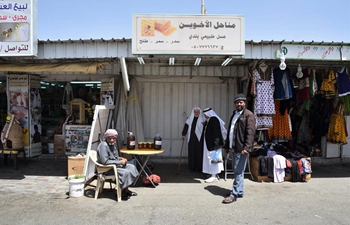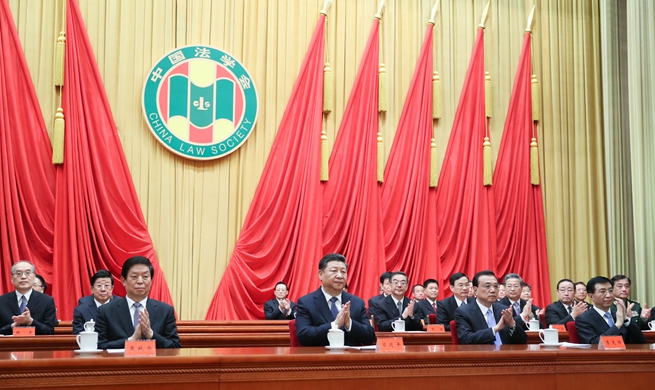BERLIN, March 20 (Xinhua) -- Several German energy and trading companies Wednesday have called on the government to speed up the transition to new energy vehicles (NEVs) while ensuring Germany to retain its "leadership as a global car supplier".
The German government has a "clear opportunity" to "take advantage of falling battery costs and set an ambitious trajectory for rolling out EVs," according to a joint statement published on Wednesday that was signed by the utility companies Eon and Vattenfall, the retail chains Metro and Ingka Group and the fleet leasing company LeasePlan.
The five companies are participating in the Climate Group's EV100 corporate initiative that is seeking to convert company fleets to electric vehicles globally.
"The German government has strongly supported the development of electric mobility in recent years. Now government and industry should work closely together to achieve a real energy transition, including the transport sector" said Andreas Pfeiffer, manager at E.ON.
Pfeiffer suggested that the German government should consider "control measures such as carbon dioxide levies as well as tax incentives for companies wishing to convert their vehicle fleets to electric mobility".
"We need a level playing field for electric cars", which would require expanding the public and private charging infrastructure in Germany said Tomas Bjoernsson, head of electric mobility at Vattenfall.
The need for more charging infrastructures in Germany was also addressed by the German Trade Association (HDE) in a letter sent to German Transport Minister Andreas Scheuer seen by Xinhua.
"Your ministry has set the goal of building 100,000 charging stations by the end of next year. According to the current state of affairs, around 85,000 charging points are needed to achieve this goal," the letter, signed by the director of DHE, Stefan Grenth, stated.
"The development of charging infrastructure suffers in particular from the fact that there is currently no economic incentive," the letter said. The DHE was therefore calling on the German government to provide financial assistance to help build more charging stations.
The DHE suggested that a support program to build up the charging infrastructure that "takes into account the special features of the retail trade and thus helps retailers to surpass the investment threshold" could help the German government achieve its objectives.













